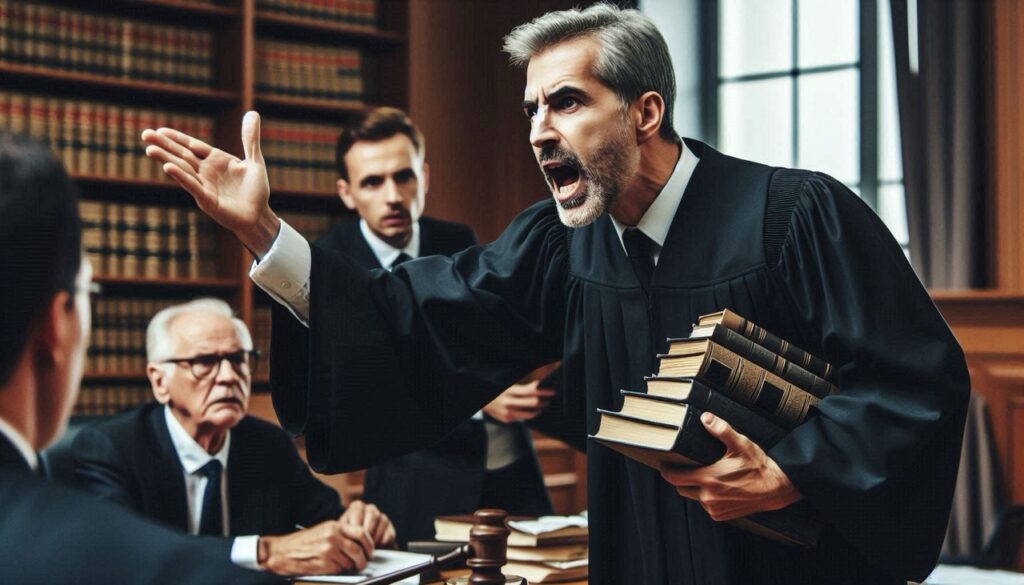Sports law is an emerging field in India that has gained significant importance with the rise in the popularity of sports and increased involvement of businesses, sponsors, and individuals. Sports lawyers in India play a crucial role in dealing with legal issues related to sports events, athletes, sponsorship deals, contractual matters, and disputes. This article will delve into the intricacies of sports law in India, exploring the major regulations, legal provisions, and roles of sports lawyers. We will also answer some frequently asked questions to provide a clear understanding of this niche legal field.
Introduction to Sports Law in India
Sports law encompasses the legal principles and regulations governing the operation, administration, and promotion of sports. It involves a wide range of legal areas, including contract law, intellectual property, anti-doping laws, dispute resolution, and more. With sports becoming an essential part of the cultural and commercial landscape in India, the need for specialized legal professionals has increased.
India’s legal framework for sports is guided by several national and international regulations, which ensure fair play, protect athletes’ rights, and maintain integrity in the sport. Sports lawyers provide legal counsel to athletes, coaches, clubs, federations, sponsors, and other stakeholders. They may represent clients in disputes, draft contracts, handle intellectual property issues, or ensure compliance with sports-related regulations.
This article provides in-depth insights into sports law in India, including key legal provisions, acts, and sections that shape the landscape of this specialized field. We also explore the significant role of sports lawyers in managing the legal aspects of sports-related matters.
Key Legal Provisions in Sports Law in India
Sports law in India is governed by a combination of domestic laws, regulations from governing bodies, and international conventions. The legal provisions can be broadly classified into the following categories:
1. Indian Contract Act, 1872
The Indian Contract Act, 1872 is one of the most significant pieces of legislation affecting sports in India. It governs the contractual relationships between athletes, sports teams, agents, and sponsors. This Act provides the framework for drafting contracts and resolving disputes arising from sports contracts.
- Section 10 of the Indian Contract Act defines what constitutes a valid contract.
- Section 73 and Section 74 deal with compensation for breach of contract and penalties for default, which are relevant when there is a violation of contractual terms in sports-related agreements.
2. The Competition Act, 2002
The Competition Act, 2002 is crucial in preventing anti-competitive practices in sports. It seeks to promote and sustain competition in markets, which includes the sports industry. The law prohibits any agreement or conduct that could result in a monopoly or unfair advantage in the sports industry.
- Section 3 prohibits agreements that have an adverse effect on competition.
- Section 4 prevents the abuse of dominant positions by organizations or players.
3. The Prevention of Corruption Act, 1988
The Prevention of Corruption Act criminalizes bribery and corruption, which are issues that sports lawyers often address. Corruption in sports, such as match-fixing, illegal betting, and other unethical practices, can be dealt with under this Act.
- Section 7 of the Prevention of Corruption Act deals with public servants accepting illegal gratification.
- Section 13 deals with the abuse of official power for illegal gains, which can relate to corruption in sports organizations.
4. The Consumer Protection Act, 2019
The Consumer Protection Act, 2019 protects the rights of sports consumers, including spectators, players, and fans. This Act addresses issues such as false advertising, misleading information, and unfair trade practices by sporting organizations or brands.
- Section 2(7) defines “consumer” as any individual who avails of services, including sports-related services.
- Section 17 relates to the protection of consumers’ rights, including the right to be informed and the right to redressal.
5. The Juvenile Justice (Care and Protection of Children) Act, 2015
Sports law also intersects with child protection laws, especially when young athletes are involved in competitive sports. The Juvenile Justice Act provides for the protection of children from exploitation, including in the context of child athletes.
- Section 23 mandates the protection of the rights of children involved in sports and recreational activities.
- Section 29 prohibits any form of exploitation, neglect, or abuse of children in sports.
6. Intellectual Property Laws in Sports
Sports law also covers intellectual property issues related to trademarks, copyrights, and patents. The protection of brand names, logos, team names, and other intellectual property related to sports is vital for sponsors, athletes, and organizations.
- The Trade Marks Act, 1999 provides protection for the logos and names associated with sports clubs and brands.
- The Copyright Act, 1957 protects the rights of creators of sports content such as event footage, commentary, and related media.
- The Patents Act, 1970 protects innovations in sports technology, equipment, and other related products.
Roles and Responsibilities of a Sports Lawyer
Sports lawyers play a pivotal role in advising and representing clients in various legal matters. Their roles can range from drafting contracts to handling disputes related to sports events, ensuring that athletes and sports organizations comply with regulations, and providing counsel on issues such as intellectual property and sponsorships.
1. Drafting and Reviewing Contracts
Sports lawyers are often involved in drafting and reviewing contracts for athletes, coaches, sponsors, and other stakeholders. These contracts can include player contracts, sponsorship deals, broadcasting agreements, and endorsement contracts.
2. Dispute Resolution
Disputes can arise in various forms, such as contract breaches, doping violations, sponsorship disagreements, or match-fixing allegations. Sports lawyers are responsible for resolving such disputes through legal means, whether it be litigation, arbitration, or mediation.
3. Representing Athletes in Regulatory Matters
Sports lawyers represent athletes and sports organizations in front of regulatory bodies such as the Sports Authority of India (SAI) or national federations for different sports. They ensure compliance with regulations related to anti-doping laws, eligibility criteria, and other legal matters.
4. Advising on Intellectual Property Issues
Sports lawyers advise clients on protecting their intellectual property rights related to trademarks, copyrights, and patents. They also help in negotiating licensing and merchandising deals for sports teams and athletes.
5. Providing Legal Advice on Sponsorships and Endorsements
Sponsorships and endorsements are essential in the sports industry, and sports lawyers help negotiate, draft, and enforce these agreements. They ensure that the terms of such deals are legally sound and benefit both the athlete and the sponsoring company.
Key Challenges Faced by Sports Lawyers in India
Sports law is still evolving in India, and sports lawyers face several challenges, such as:
- Lack of Awareness: Many athletes and sports organizations are not fully aware of their legal rights, which makes it difficult for sports lawyers to provide adequate representation.
- Regulatory Gaps: While there are some established regulations, certain sports in India are still governed by outdated laws, which creates legal challenges.
- Corruption and Integrity Issues: Match-fixing, illegal betting, and corruption are persistent issues that sports lawyers often have to address, requiring vigilance and proactive legal measures.
Sports law in India is an essential and evolving field, addressing a range of issues from contract disputes to regulatory compliance and intellectual property concerns. The role of sports lawyers has become crucial in ensuring that athletes, sponsors, and sports organizations can navigate the complex legal landscape of the industry. By understanding the relevant laws and regulations, sports lawyers help maintain integrity in Indian sports, protect the rights of athletes, and contribute to the development of sports law in the country.
FAQs on Sports Lawyers in India
1. What does a sports lawyer do in India?
A sports lawyer in India advises clients on a range of legal matters related to sports, including contract negotiations, disputes, intellectual property rights, and regulatory compliance. They may also represent clients in legal proceedings and arbitration.
2. What laws govern sports in India?
Sports in India are governed by various national laws such as the Indian Contract Act, The Prevention of Corruption Act, The Consumer Protection Act, and sector-specific regulations established by organizations like the Sports Authority of India (SAI) and national sports federations.
3. Do sports lawyers handle intellectual property matters?
Yes, sports lawyers handle intellectual property matters related to trademarks, copyrights, and patents in sports. They protect logos, team names, and other intellectual properties associated with sports.
4. How can I find a sports lawyer in India?
You can find a sports lawyer in India by researching law firms that specialize in sports law, checking for lawyer directories, or seeking recommendations from athletes, coaches, or sports organizations.
5. What is the role of a sports lawyer in dispute resolution?
A sports lawyer helps resolve disputes related to contracts, sponsorship agreements, match-fixing, or other sports-related issues by representing their clients in court or arbitration proceedings.









